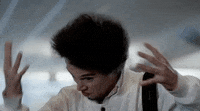The Ignorance and Impact of War
Mark Twain's The Private History of Campaign That Failed and Ambrose Bierce's Chickamauga are two extremely different Civil War stories, one chronicling a band of inexperienced southerners and their cowardly escapades through Missouri and the other that lays out the story of a boy who stumbles upon the aftermath of the Battle of Chickamauga. However, there are similar concepts expressed through both the stories such as the ignorance of war, the adventurous spirits yet inexperience of those ready to participate, and most importantly the impact of war.
Twain not only displays an ignorance of true war throughout his actions but also admits it when stating "I should say about half of us looked upon it in much the same way, not consciously perhaps, but unconsciously." This refusal to look at the actuality of the situation and what could come paints the true picture of inexperience and unawareness of the repercussions war brings about. The boy in Chickamauga displays the same ignorance when he rushed into the woods with a wooden sword he made himself and "assumed, with some exaggeration, the postures of aggression and defense that he had been taught by the engraver's art." A real soldier would know better than to storm off alone, much less with a toy sword.
Both Twain and Bierce heavily focus on the adventurous spirits of their characters, which is vitally important for participation in the war was not only for the retention of slaves, but for many it proved to be an escape from the mundanities of everyday farm life. Twain admits "As for myself, I was full of unreasoning joy to be done with turning out of bed at midnight and four in the morning, for a while grateful to have a change, new scenes, new occupations, a new interest." Bierce embraces how the boy "was happy in a new sense of freedom from control, happy in the opportunity of exploration and adventure," portraying the sensation of a new world to witness.
Both writers place a strong emphasis on the impact of war and the collateral damage that erupts as a result. This takes on two drastically different forms however, one with a physical as well as emotional impact, another with mental and emotional repercussions. Twain recounts the tragic moment when the Marion Rangers killed a man who was believed to be a Union soldier stating, "The mans was not in uniform and was not armed. He was a stranger in the country, that was all we ever found out about him." Twain then paints a picture of how the event plagued his mind and even after trying to console himself "there was no solace. . . Against a diseased imagination, demonstration goes for nothing."
In Bierce's Chickamauga, when the boy arrives to the devastation of the flames he realizes it's his own home and finds his mother mutilated as a result of collateral damage from the battle. He "moved his little hands, making wild, uncertain gestures. He uttered...upon the wreck." This heartbreaking and tragic ending enforces the concept of innocent loss caused by war and the wreckage it brings to those uninvolved.



Comments
Post a Comment